Cancer affects more people than once could possibly take into reality in devastating ways; as much as a million lives are expected to pass from this abnormal cell-growth disease. It’s heart wrenching to not yet see an absolute cure for this disease.
However, there may be a breakthrough with the developing cure process called immunotherapy; the Cancer Research Institute, a top-leading 501(c)(3) nonprofit organization with the mission to fight cancer utilizing the body’s own immune system, may just be the one to win this battle.
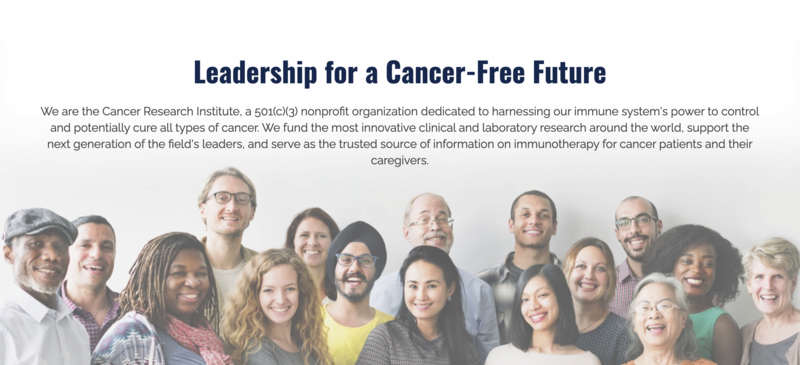
The Cancer Research Institute
Founded in 1953, the Cancer Research Institute, or CRI, is a not-for-profit organization with total dedication in the field of cancer immunology and cancer immunotherapy. For more than 67 years, the mission has never changed: their unwavering goal to discover the proper and effective treatment is well underway, and they are recognized as the world’s leading nonprofit funder regarding immunotherapy.
As a non-profit, their funds are generated and drawn from the general public; from individuals to foundations to corporations, the operating budget is raised annually to take a step further in achieving the mission. Majority of the dollars raised each year, around 87%, go to programs, CRI says; the organization strives to consciously spend the philanthropic donations.
We fund the most innovative research by young scientists, invest in clinical studies of promising new treatments, and serve as a bridge between the lab and the clinic. To date as of now, CRI has invested $445 million to fund more than 3,400 scientists all over the world. With 67+ years of experience funding research on the immune system and cancer, CRI is leading the way and ushering in a new era when patients with all types of cancer can be treated and cured with immunotherapy.
Research is supported worldwide; between research from work in the laboratories, to the translational phase between labs and clinics, and onto clinical trials, CRI works to serve as a bridge for patients interested in immunotherapy to navigate the system and process of this treatment.
“Our goal is to save more lives by supporting the discoveries and research that will lead us to understand how the immune system works, how it interacts with cancer, and hopefully developing therapies that use our immune system to treat all types of cancers.” says Dr. O’Donnell-Tormey during our introduction to our virtual meeting.
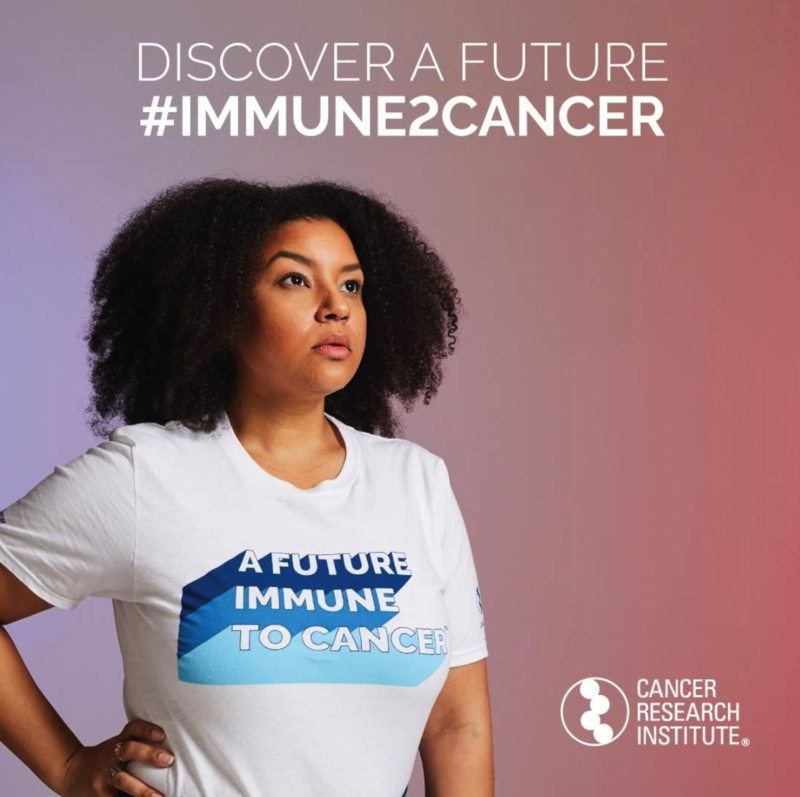
Who is Dr. Jill O’Donnell-Tormey?
I had the utmost delight having the chance to speak with Dr. Jill O’Donnell-Tormey, the Chief Executive Officer and Director of Scientific Affairs of the Cancer Research Institute.
Jill O’Donnell-Tormey, Ph.D., is chief executive officer and director of scientific affairs of the Cancer Research Institute (CRI), a nonprofit organization founded in 1953 that is today the global leader in supporting and coordinating research aimed at harnessing the immune system’s power to conquer all cancers.
She joined the organization in 1987, and has been chief executive since 1993. Prior to joining CRI, she served as a research associate in the department of medicine at Cornell University Medical College and as a postdoctoral fellow in the laboratory of cellular physiology and immunology at The Rockefeller University.
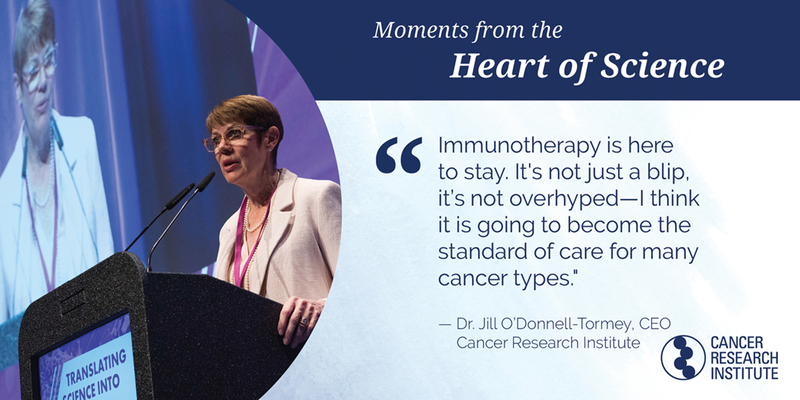
How It Began
“Founded on January 27, 1953 by Helen Coley Nauts and Oliver R. Grace Sr., two visionary individuals who believed that, together, they could end the devastation of cancer. Their legacy is an organization that has built up an entire field of cancer research–the field of tumor immunology–that today is producing immunotherapies that are extending and saving lives of cancer patients[,]” writes the Cancer Research Institute.
“To appreciate the history of the Institute, however, we should first look back to 1938. While mourning the death of her father Dr. William B. Coley—a prominent surgeon who practiced medicine in New York between 1890 and 1936—Mrs. Nauts began to go through his papers and came to an important realization. Although Dr. Coley had been a noted cancer surgeon, he was also a pioneer in the non-surgical treatment of cancer, an approach that would lead to some of today’s most impactful cancer immunotherapy breakthroughs.”
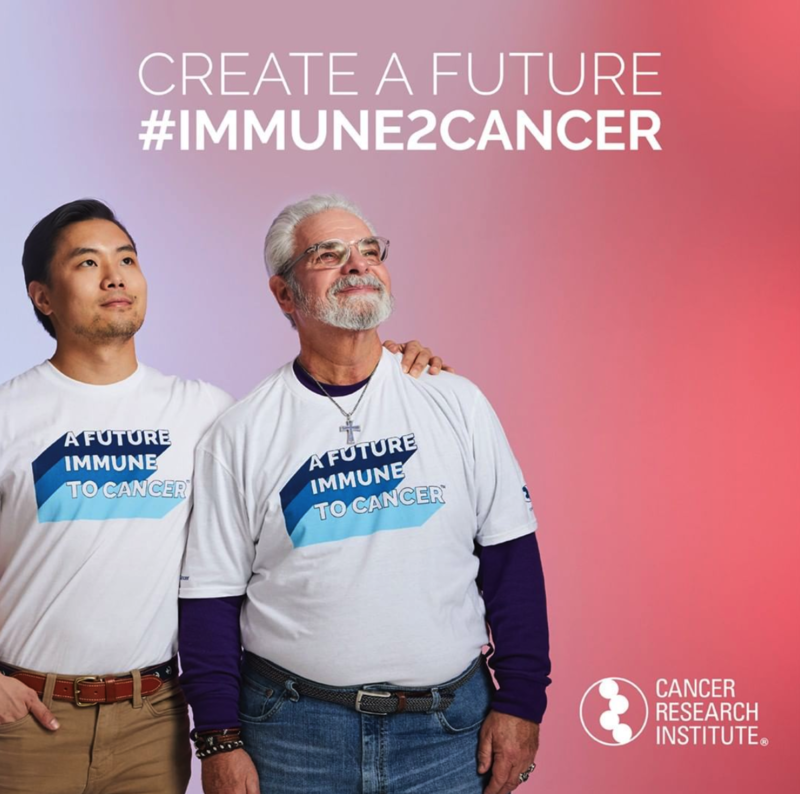
All About Immunotherapy
Kate-Yeonjae: Please tell us in-depth about immunotherapy- what would be said to be its basic concept?
The immune system consists of different organs in our body and many cell types. It’s true primary function is to protect from pathogens and foreign entities that enter the body, whether it be bacteria, virus, splinter, or cancer- which isn’t a foreign entity, but normal cells that’s shifted form in dangerous characteristics- in short, the immune system is evolutionarily recognized what is self and what is non-self.
It’s miraculous to have such system be able to recognize foreign elements and pick apart from the in-body cells; however, there are some occurrences in which the immune system will fail to recognize properly and will identify the body cell as foreign, and attempts to eliminate- which then goes in regard to autoimmunity.
Now that we’ve got the basic premise of the immune system covered:
With the immune system, this is where the concept of immunotherapy comes in: “We now have learned that whenever an immune response is generated, your body naturally turns that immune system off,” Dr. O’Donnell-Tormey states, “This is because the body does not want to always stay in a state with the immune system [constantly] activated, as cells will continue to be killed, leading to inflammation.”
“To mount these huge army of cells that can recognize and destory these foreign entities- what the CRI has found in the last ten years that is the basis of immunotherapy is that [the idea was] perhaps if you didn’t shut the immune system off too quickly- but instead allowed it to stay activated, it may better kill cancer cells.”
This is absolutely valid; we have the proof that the immune system can recognize cancer cells. With this, the Cancer Research Institute is turning back around to use the magical, natural forces of our own body to battle cancer.
Why not if we can?
We’ve got the antibodies and T-cells that can acknowledge and attack the cancer cells; how come the immune system doesn’t do as good of a job?
Part of the answer lies quite simply in retrospect: perhaps our bodies had been shutting off the immune system just too fast. “This is now what we call out checkpoint blockades,” explains Dr. O’Donnell-Tormey, “this was one of the first approvals by the FDA about ten or fifteen years ago that really opened up the field of immunotherapy; what this does is that it allows the immune system to keep going [to continue to fight the cancer cells].

The First Steps Taken
The newfound discovery of letting our body systems fight was first tested on advanced stage melanoma patients that had failed every treatment around- chemotherapy, surgeries, everything else. They had metastatic disease, which were the effects of the melanoma cancer skills that were all over their body, which in other words meant they were close to death.
However, a breakthrough event occured; the patients were given the checkpoint blockades antibodies, which allowed the immune system to now identify the cancer cells and destroy them. “These people are now alive and living,” says Dr. O’Donnell-Tormey, “It was based on that data first that the FDA approved the first checkpoint blockade.”
It does not yet work for every cancer, it doesn’t for work for every patient, but that’s why we have to continue doing research so that we can understand why some perople respond and some people do not.
Now, more so than ever, we know that we are in a different place than before because we have proof of principle that one’s immune system can be activated, controlled, and unleashed to treat cancer; it’s become standard of care in certain cancer types, and is the recommended FDA-approved first treatment one receives instead of chemotherapy and radiation. It’s now becoming a widely acceptable form- “it’s probably the fourth pillar of how cancer is treated,” remarks Dr. O’Donnell-Tormey.
Immunotherapy is here to stay and make its mark. “It’s remarkable because this was not the case 30 years ago,” Dr. O’Donnell-Tormey says to Kate-Yeonjae, “It’s truly exciting to see where we are today.”
What Makes It Special?
Kate-Yeonjae: How is this innovation a new future for cancer treatment, and what makes it different from other treatments?
“I think that the biggest way that this is different is that this is using your own body to treat yourself,” replies Dr. O’Donnell-Tormey, “It’s not using an outside chemical that’s coming in, it’s not outside radiation to kill the cells, but it’s actually how CRI has learned to capture the amazing power of your own immune system and that we can focus and target it to respond against cancer.”
There’s of course the side effects, which is bound to come with treatments of such severe diseases; when thinking of treatments such as chemotherapy, people tend to think hair loss, vomiting, and such, but those are actually not the side effects of immunotherapy. It’s not to say there aren’t any, but that most are immune-based as it is being over activated, which could lead to a type of autoimmunity.
Dr. O’Donnell-Tormey: I think it’s a very impowering treatment, and that patients can feel, “Wow, my own body can do this.”
“I’ve talked to patients that have had chemotherapy and then immunotherapy,” says Dr. O’Donnell-Tormey, “I’ve had them say that immunotherapy is like a walk in the park compared to having chemotherapy. Of course, that varies from patient to patient, and it can’t be painted as a toal rosy picture, but it’s a new way of treating cancer that we have been focusing on for 60 years- however, it’s only in the last decade that we’ve actually figured out how to capitalize on that power.”
“We’ve had people that were expected to live for just six months go on to live twelve, thirteen years and counting with the incorporation of immunotherapy,” Dr. O’Donnell-Tormey tells Kate-Yeonjae during the meeting, “It’s incredible to see our mission come to life.”
The Focus
Kate-Yeonjae: The CRI resources also list different immunotherapy treatment types, such as vaccines, immunomodulators, therapies, and more. With the Cancer Research Institute especially, which area is the biggest research focus, and what sets each treatment type apart from the other?
There isn’t really a “focus” that separates one immunotherapy treatment into “The One”.
“As said, there’s a lot of different types of immune system and cells in your body- it’s not just T-cells- so there are also different types of treatments that we are in the process of: there are immunomodulators of other cells in your immune system, cancer vaccines to stimulate the immune system response, biospecific antibodies that acts as a joiner to put cells together to activate T-cells. These are just some of the types of immunotherapy treatments; those are certainly what a physician or oncologist can prescribe in certain cases.”
“I’d say that the Cancer Research Institute really focuses across the board,” Dr. O’Donnell-Tormey answers.
CRI funds a lot of the basic biology that underlines to understand how the different components of the immune system work together; this focus on one would be a very general area. The Cancer Research Institute is also working on various combinations of the different immunotherapies together, and also combinations of bringing immunotherapy with more of the other standard of care with some chemotherapy then with radiation.
“We really fund the entire continuum, from basic lab discovery into clinical trials, and I can’t say we focus on one area more than the other. We only focus on what is scientifically excellent- as applications come in from scientists all around the world, they are judged and read by our world-renowned scientific advisory council and we fund what is the most exciting and outstanding research.” Dr. O’Donnell-Tormey explains.
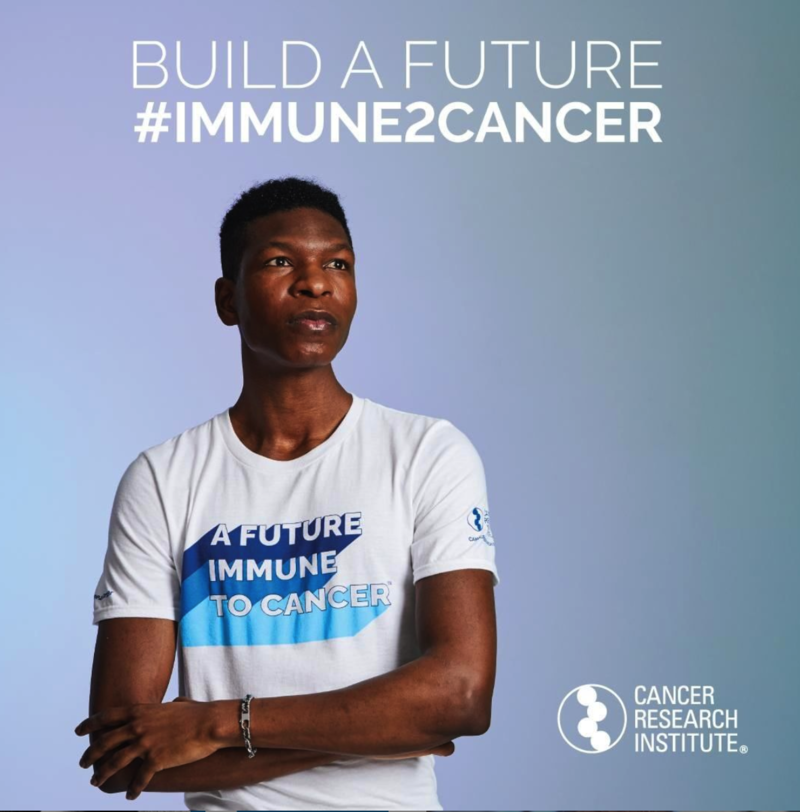
The Biggest Accomplishment
Kate-Yeonjae: What would be said to be CRI’s biggest accomplishment in regard to its mission?
CRI has, in fact, “really been one of the first and sole organizations to support this type of research,” says Dr. O’Donnell-Tormey, “[so] I’m proud that the people we have supported, the projects and discoveries we have supported- [those factors] are really what have laid the foundation for where the field is now.”
“The greatest accomplishment is knowing that we really were the standard-bearers of this field, and that we continue to support some of this great research that has led to this remarkable benefit to cancer patients,” Dr. O’Donnell-Tormey says.
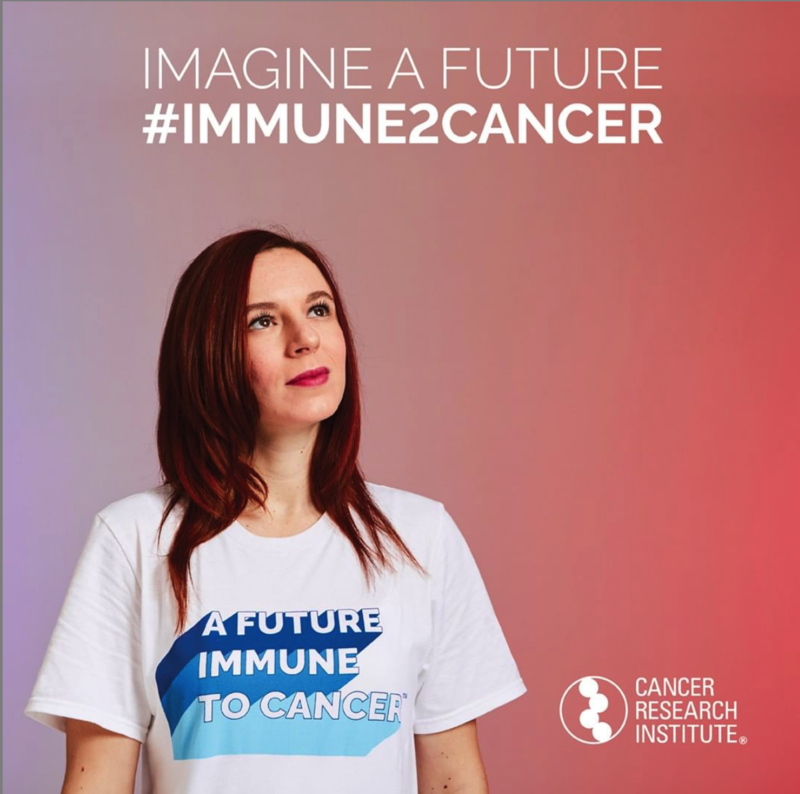
In The Future…
Kate-Yeonjae: Where do you hope to see CRI’s organization in 10 years?
“Well, I’d love to say in 10 years we’ll be out of business from curing all cancers,” Dr. O’Donnell-Tormey tells us, “but I don’t think that is going to happen. Although that would certainly be amazing, where I think we’ll be is that we will still continue our strategy of using donor funds, focus on immunology, lead on the potential that immunotherapy can be used to treat all forms of cancer.”
So in ten years, I would hope that there will be more cancer immunotherapies available, that we will be able to better identify at the time of the patient’s diagnosis the type or combination of immunotherapy needed. The goal would be to really develop personalized immunotherapy, as it is not one size fits all. It is through research we can understand those differences, and be able to identify what they are early on. -Dr. O’Donnell-Tormey
Proud To Be With CRI
Kate-Yeonjae: As someone who is involved and works for the organization, what makes you the most content and proud about your career with CRI?
“I have a lot to look back, and I think I’m very proud that we are highly respected not-for-profit organization, and that we try to get as much impact out from every donation we receive. I’m proud of that we can look back and say we really seeded the field with people that are leaders today, and that they can say they got their start by being funded by the Cancer Research Institute. I’m proud that some of the seminal discoveries which I really find to be the foundation for the field in the way we are today discovered through the funding we have helped provide.” Dr. O’Donnell-Tormey reflects.
“I’m also proud that I have a staff that is small but nimble and dedicated to our mission; I really look at them as a family.” -Dr. O’Donnell-Tormey
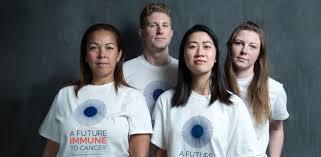
Gen Z Can Get Involved, Too!
When asked, “As a primarily Gen Z and young adult magazine, is there a way teenagers can be involved with the Cancer Research Institute?”, Dr. O’Donnell-Tormey responds, “Social media would be the biggest ways teenagers and young adults to contribute to our cause. Whether it be Instagram, TikTok, YouTube, or any other [communicative platform], sharing word always helps.”
The Cancer Research Institute has an Instagram, which holds the username @cancerresearchinstitute, and a Facebook page, which can be found here. Additionally, their YouTube channel has uploaded much videos and content that are incredibly informative about the organization.
Fundraising is also another key aspect of ways teenagers can get involved; starting a fundraiser and sharing through social media would be one to generate funds for CRI. “You can always incorporate talent into these projects to bring awareness to this cause,” says Dr. O’Donnell-Tormey, “we’ve had many people host concerts. films, or gaming events all to support CRI. Other ideas people have done are those that are in craft businesses that donate proceeds to the Cancer Research Institute, and I would say to organize school charities through clubs and councils.”
On the non-fundraising side, it is always wonderful to share and increase public awareness of what cancer immunotherapy is, and what CRI stands for. June is Cancer Immunotherapy Month, and it is the time in which awareness is raised and public education is provided with the resources and activities.
The CRI Blog posts often regarding news of progress and updates, and their website additionally holds tons of resources to further gain insight of immunotherapy.
ATTENTION: Upcoming Event
The Cancer Research Institute will be hosting the CRI Virtual Awards Gala on September 29th, 2020, at 6:30 pm to 8:30 pm Eastern Time (US and Canada).
Hosted by actor/comedian Joel McHale with special appearances by YouTube sensation Markiplier, Nobel Laureate Dr. James Allison, and musical guest Williams Honor, the gala will start off with a Pre-Show and conclude with the main focus on the Gala.
The event will be awarding and recognizing indivisuals with incredible contributions to cancer research “through scientific discovery or philanthropic leadership [that] have significantly advanced our mission to save more lives through immunotherapy: Innovators in Science and Philanthropy.”
To learn more about this event, click here. If you would like to register, click here.

Thank you!
Biggest of thanks to Dr. O’Donnell-Tormey and the Cancer Research Institute for the amazing interview– The Teen Magazine is honored to spread word of this mission and to share for more awareness on this breakthrough treatment.
Be sure to keep up with the Cancer Research Institute to follow and support their mission to save lives through immunotherapy, and tune in for the virtual gala coming up soon!







